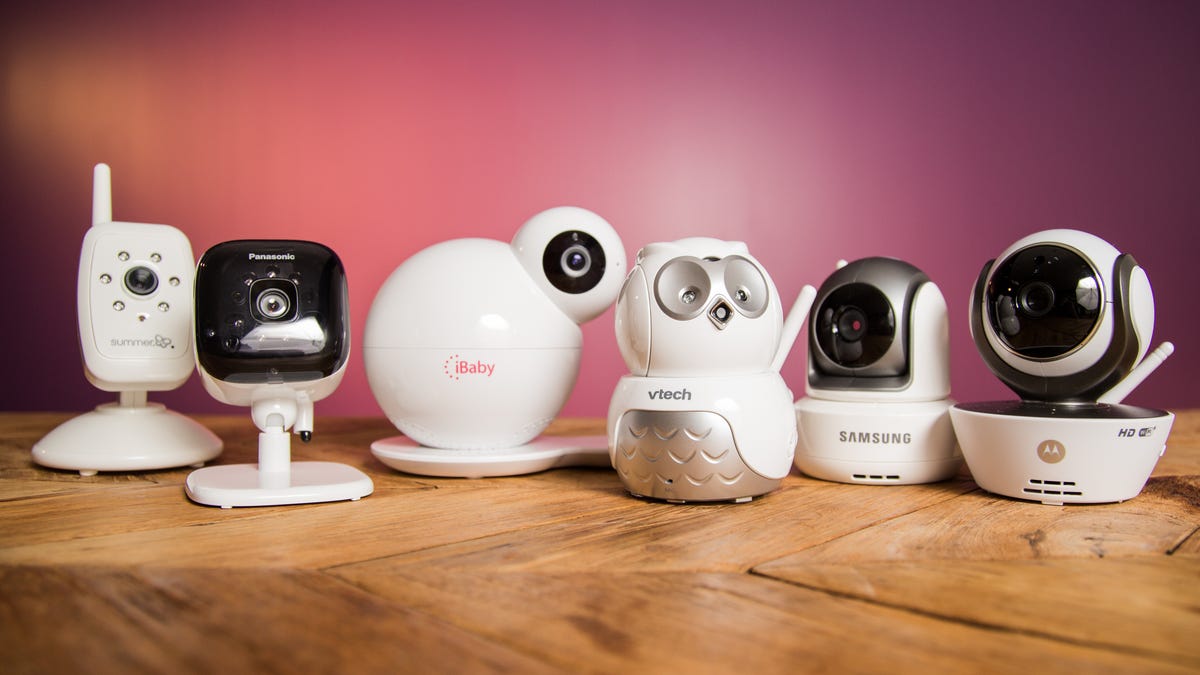How to find the right baby monitor
The four questions every new parent should ask while searching for the best video monitor.

When you're about to have a child, one of the must-buy products is a baby monitor. Sure, you'll be sleeping in the same room for a few months, but if you want any alone time while the baby is napping, a monitor is paramount. Of course, picking the right monitor isn't as simple as it once was.
There are the reliable, low-tech walkie-talkie monitors, but those won't let you monitor your child while you're at work or away from home with a babysitter left in charge. There are the high-tech wearable monitors, but those are expensive, they're scientifically unproven, and they won't tell you things like when a baby is crying. There's another category in between those two, though -- the video baby monitor. These devices have the functional benefits of a simple audio device, but they also add in some of the smart features 21st century parents might expect.
When you're picking one out, here are the four most important questions to ask.
What are your must-have features?
Although most monitors are pretty similar, they all have small, distinguishing features that can make or break the experience. Night vision, two-way audio, and pan/tilt camera control are common, but not a given. Similarly, lullabies and audio bedtime stories can be a nice addition for slightly older children, whereas push notifications for movement and sound could help in larger houses. Before picking up a product, make a list of your must-have features.
Does it integrate?
If you're just looking for a camera to monitor your sleeping child, then plenty of products will work for you. But only a few work with larger systems. The Panasonic baby monitor can integrate with a hub alarm, door/window sensors, motion sensors, and smart plugs. Alternatively, smart cams like Nest Cam or the Samsung SmartCam HD Pro aren't strictly baby monitors, and they're often a little pricier, but they also work much better with a bigger smart home setup. Before choosing your device, decide if you just want a standalone product, or if you're interested in building a larger smart home ecosystem.
How will you use it?
It sounds like an obvious question, but baby monitors can be used in multiple ways. For instance, when my son falls asleep in his bed and I want to watch a movie, I just need a small screen that I can glance at anytime. If I've hired a sitter, though, I don't want to be carrying a bulky monitor around -- I want to be able to check on my son on my iPhone. Sadly, few devices have both a standalone monitor and a good mobile app. Before you decide on a particular gadget, ask yourself how you'll use your baby monitor most often.
Is it secure?
The last thing any parent wants is a stranger talking to their child through the two-way audio on their baby monitor, and yet stories of this sort of security breach are surprisingly common. The bad news is, according to experts like Johns Hopkins professor Avi Rubin and Harvard security specialist Bruce Schneier, it's pretty much impossible to tell how secure any given smart product is.
A few pointers: products from bigger companies like Google or Apple are much more reliable than startups. Also, products that use their own 2.4 GHz radio frequency are a little more secure than those that use your Wi-Fi. Finally, it's important to change network and product passwords often, and choose ones that are complex and difficult to guess.
Many aspects factor into the decision of which video monitor is best for you, but if you ask these four questions, you'll be off to a good start.

